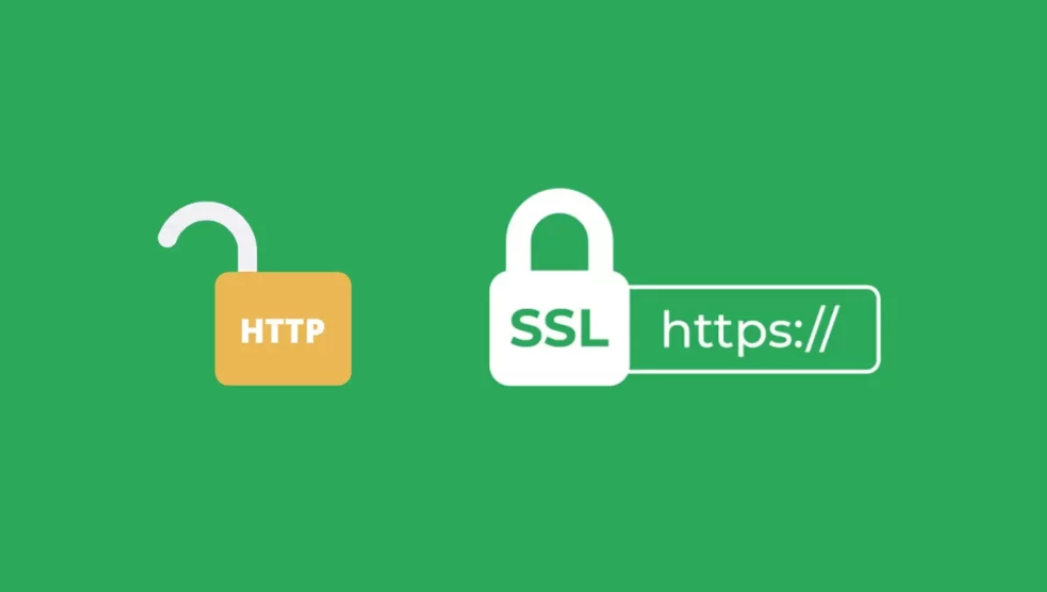When it comes to online security, an SSL certificate is a very important component that allows encrypting data and thus, safeguarding our private information. Even though there are some misconceptions about SSL certificates which can be very difficult to overcome for the website owners. In this blog post, we will discard some of the most common notions about SSL certificates to bring you a better argument for them and a better understanding of how they function.
SSL Certificates Are Only Necessary for E-Commerce Sites
This widespread myth underestimates the universal necessity of SSL certificates across various types of websites, not just those engaged in e-commerce. The digital era demands robust security measures for any site collecting user data, regardless of its nature. This includes blogs that gather subscribers’ emails, forums where users may register accounts or any platform that facilitates user interaction through personal information submission. The idea that only web shops are SSL certificate holders and do not see the large picture is a single case.
SSL certificates use encryption methods to travel info through a secure tunnel and as a result, personal information, such as credit card numbers and social media logins are kept safe from unauthorized access. This level of protection forms the basis of the audience’s trust in you as it demonstrates that you consider privacy and safety issues as of paramount importance. Another important point is that aside from transactional websites, an SSL certificate also plays a role as an indexing factor in search engines. In a nutshell, all the benefits that SSL certificates give are limitless on the web making them no longer optional when you want to guarantee that your online site is both secure and reliable.
A Free SSL Certificate Is as Good as a Paid One
The belief that free SSL certificates provide an identical level of security and trust as their paid counterparts is a widespread myth requiring clarification. At first glance, both types of certificates seem to offer the same fundamental feature: encrypting the data transferred between a visitor and the server to prevent eavesdropping. However, the similarities often end there. Free SSL certificates, while beneficial for establishing a basic layer of security, typically come with limitations that can affect a website’s credibility and overall security posture.
One of the primary distinctions lies in the validation process. Paid SSL certificates, especially Organization Validated (OV) and Extended Validation (EV) certificates, undergo a thorough vetting process. This process, besides merely proving the registration of the domain, also informs the world about the standing of its existence and operation. This strict verification process helps to “build trust and authenticity” into the website and is signified visually by trust symbols in the URL address bar like the company’s name or green address bar. Such signs significantly heighten visitors’ trust levels, and their trust is of particular significance for web pages where secure transactions take place.
In contrast, free SSL certificates often provide Domain Validation (DV) only, which verifies the ownership of the domain but does not delve into the legitimacy of the organization behind it. While this level of validation is suitable for blogs or personal websites, it might not suffice for business websites where users expect higher security and trust levels.
Warranty For The Paid Ones
Moreover, the support and warranty offered by paid certificates are invaluable assets, especially for websites that conduct e-commerce or store sensitive user information. The warranty can provide financial compensation in the unlikely event of a breach due to a certificate flaw. Apart from that, the paid certificate providers work swiftly to deal with any problems that could reduce the website’s security measures.
Issuing free SSL certificates is a good start for improving online security but is only a substitute for a full-fledged solution and not the total solution for all websites. The decision between a free or paid certificate should be guided by the specific needs, nature, and scope of the website in question.
SSL Certificates Immediately Secure a Website Completely
The misconception that an SSL certificate is a panacea for all website security issues is far from reality. Data encryption is one of the major parts in the process of securing the data transmission between a user and a server, but it is not a perfect tool against all types of cyber threats. An all-round approach is a must for any meaningful security. This will be possible through methods like implementing regular updates to the site’s software, using strong password policies to secure user accounts, and putting up firewalls to prevent external attacks.
The website administrators should also periodically audit the system to identify and rectify risk lapses. In addition to this, it’s more crucial to educate users on safe browsing practices, which adds another layer of security on top of SSL encryption. This, in turn, leads to a much safer internet, at the same time demonstrating that SSL certificates serve only as one element in a broader security framework. The digital terrain is always changing, because new dangers keep appearing, which contradicts the idea of having one security level that would protect both user data and the website itself.
SSL Certificates Slow Down Website Performance
The belief that SSL certificates inevitably lead to slower website performance is a misconception that fails to consider the advancements in encryption technology and internet infrastructure. While encryption does introduce a layer of processing, modern servers are well-equipped to handle this with negligible impact on loading times. It’s critical to understand that the initial handshake process, where the server and client establish a secure connection, has been optimized in recent protocols to be as efficient as possible.
Moreover, the argument against SSL certificates on the grounds of performance overlooks the benefits they bring in terms of SEO and user trust. Search engines favor secure websites, potentially boosting the rankings and visibility of SSL-protected sites. This can lead to increased traffic, which, when combined with the trust engendered by the presence of HTTPS in the address bar, may result in improved engagement metrics.
In terms of actual user experience, the delay introduced by SSL is often measured in milliseconds, a virtually imperceptible amount of time for human users. Furthermore, HTTP/2, which is a protocol that requires SSL/TLS, can largely influence the speed of a website by enabling multiple streams on the same connection, finally excluding the performance issue.
Furthermore, the optimization of web content and the structure of server configuration become more important to site speed than SSL. The correct usage of code-optimized images, efficient coding practices, and dependable hosting service are all critical elements that could perfectly eliminate any delay, which will make SSL encryption just a minor overhead compared to the security and trust that it brings.
Once Installed, SSL Certificates Require No Maintenance
A common fallacy that circulates among website owners is the notion that SSL certificates are a set-it-and-forget-it solution. This misunderstanding can lead to lapses in a site’s security posture, exposing it to potential vulnerabilities. In reality, SSL certificates have a defined validity period, typically ranging from one to two years, after which they must be renewed. Failing to renew a certificate on time can result in website browsers marking the site as insecure, which can deter visitors and harm a site’s reputation.
Another important issue is that the digital security landscape is in constant change with threats appearing and vulnerabilities increasing regularly. Then, new ciphers and standards are regularly released to keep up with the pace of change. The knowledge of these changes is fundamental to make sure that the SSL certificate does all the maintenance functions it has to. It may occasionally be necessary to replace an existing certificate ahead of its expiration if it uses an encryption method that has been deemed insecure or obsolete.
To maintain optimal security, website administrators should regularly monitor their SSL certificates’ status and the security advisories relevant to SSL/TLS protocols. Notifications can be a helpful device in alerting the administrators when expirations are approaching. On top of this, some hosting companies provide managed SSL services that do SSL renewals and updates, and therefore web owners can concentrate on other things while their continual protection does not stop. This vigilance in managing the SSL certificate is key to the organizations’ protection of the users’ data and maintenance of the integrity and trustworthiness of a website.
All SSL Certificates Offer the Same Level of Security
It’s a common misconception that all SSL certificates offer a uniform level of security, but the reality is much more nuanced. The variety available—ranging from Domain Validated (DV) certificates to the more scrutinized Extended Validation (EV) certificates—means that the level of validation and, by extension, the degree of trust and security provided can vary significantly.
DV certificates, for example, verify only the domain’s ownership, making them a quick and accessible option for many site owners. However, for businesses or platforms where user confidence and data protection are paramount, EV or organization-validated (OV) certificates are advisable. The latter ones go through a long and thorough vetting process, thus, identifying the true owners of the website. This is critical for portals dealing with financial transactions where client trust and loyalty are essential factors. Consequently, taking into consideration the discrepancies between certification types is crucial to choosing the level of security that perfectly matches your website needs because no common means are effective in all cases.


